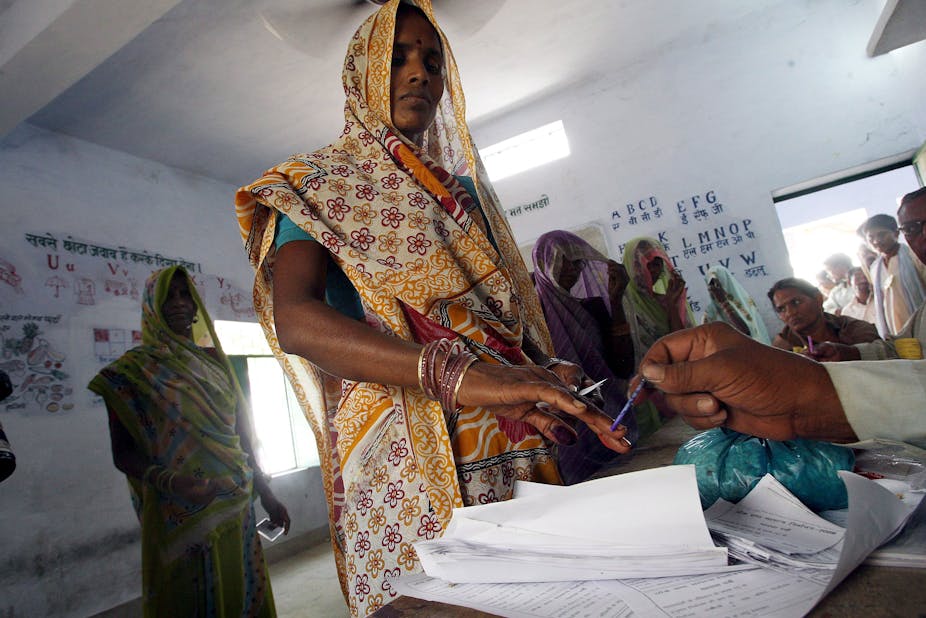In part 11 of the multi-disciplinary Millennium Project series, Danielle Logue and Mel Dunn note the striking absence of male voices in discussions of women’s empowerment, despite it being fundamental to a legion of social improvements.
Global Challenge 11: How can the changing status of women help improve the human condition?
Women’s empowerment has been one of the strongest drivers of social change over the past century. Although much progress has been made, significant differences still remain for women’s economic and political participation.
This is unacceptable to anyone seeking greater equality for women, but also for those who want to improve the human condition. So rather than rattling off statistics about women’s representation as heads of government, on corporate boards, or as a proportion of wages, we present three arguments that go towards re-imagining the Millennium Development Goals’ (MDGs) gender priorities.
Top priority
In the Millennium Project’s global challenges, the status of women is numbered 11 out of 15. While probably not intended to represent rank, the changing status of women is far more fundamental than this number represents.
It underpins the achievement of all the goals, particularly MDG2 (universal primary education), MDG3 (equality and women’s empowerment) and MDG5 (maternal health). In fact, it is hard to imagine any of the other 14 global challenges in the State of the Future not benefiting from the improved status of women.
Equally, unless these other challenges are genuinely approached with a true understanding of gender, it is hard to imagine much success.
A society where the female voice is sought and heard, where the principles of equity (fairness) and equality (opportunity) co-exist, where gender-based violence is not committed or excused, is a more powerful and effective society.
From Kofi Annan espousing the power and importance of educating girls (and boys) as the most powerful development policy, to Ban Ki-moon highlighting the factual links between educated girls and enhanced health and maternal outcomes, the value of creating a more equal world is clearly fundamental to improving the human condition.
The other half
Our second observation, is directly related to expediting progress towards changing women’s status. Although we have increasing numbers of female CEOs, board members, politicians and even a few female national leaders, we are far from equality.
Rafts of programs and policies have had little effect – according to Queensland University’s Dr Terrence Fitzsimmons, with over 2,000 studies on gender disparity in leadership positions continuing to be debated.
What we observe, amongst these discussions, is that whilst there are many associations, conferences, panels and programs to address gender equity and equality – in business, development and politics – there are strikingly few or no men involved.
For example, one of the roles of UN Women Australia is to “Challenge attitudes which perpetuate gender inequality in Australia and globally”, yet its national board is 100% female. We suggest that the inclusion of men on such boards (or panels, task-forces and programs) may have significant impact – or at least, is worthy of consideration.
One such example, that is working well, is the White Ribbon campaign. This is a male-led campaign (led by a female CEO), where men are addressing the issues of violence against women; issues that clearly impact women’s status.
Prevention of domestic violence obviously requires men’s input, and their direct involvement in this campaign is a successful example of where focusing on men’s role can improve the status of women. Here women and men are working effectively together to change the status of women.
Women’s business
Our third argument in regards to the need for changing the status of women is about presenting the arguments for change as both a moral and economic imperative. With an estimated control of over 70% of global consumer spending, women are strongly influencing market preferences.
University of Oxford’s Professor Linda Scott recently coined the term the Double X Economy to describe the global economy of women. She argues that: “While women have always engaged in economic behaviour, their activities and outcomes have usually gone unnoticed, unmeasured, untracked, and unregulated, because of assumptions and limitations inherent in conventional economic thought”.
By recognising the role of consumption in economic development, women’s influence on consumption patterns becomes strikingly important, and begins to reveal the power and reach of the women’s economy. As outlined by Professor Scott, women are often employed in informal work or in un-monetised work, and so their considerable power has been made invisible.
No simple answers
The changing status of women is clearly complex. Inequality and empowerment issues cannot be adequately addressed where only half of the population is positively and actively engaged.
The challenge of enhancing the status of women, to true equality needs greater engagement with and by men. We should not think of this challenge as “women’s issues”; changing the status of women should be an issue for the human race – women and men – to address.

